বাংলাদেশ থেকে কানাডা: এক বিজ্ঞানীর পথচলা
মাটির সুস্থতা এবং কৃষির টেকসই ভবিষ্যৎ গড়ে তুলতে নিবেদিত একজন বিজ্ঞানী—ড. নজরুল ইসলাম। তার যাত্রা শুরু হয়েছিল বাংলাদেশ থেকে, কিন্তু আজ তিনি বিশ্বের কৃষি গবেষণার অন্যতম গুরুত্বপূর্ণ মঞ্চে কাজ করছেন। বর্তমানে তিনি কানাডার Regenerative Agri-Science Canada, Applied Research Centre for Soil and Crop Health-এ গবেষণা করছেন, যেখানে তার মূল লক্ষ্য রাসায়নিক সার ও কীটনাশকের বিকল্প উদ্ভাবন করে টেকসই কৃষির পথ তৈরি করা।
গবেষণার প্রতি আগ্রহের জন্ম
২০০০ সালে বঙ্গবন্ধু শেখ মুজিবুর রহমান কৃষি বিশ্ববিদ্যালয়ে উদ্ভিদ রোগবিজ্ঞানে মাস্টার্স করার সময়ই তিনি উপলব্ধি করেন, বাংলাদেশে কৃষিতে রাসায়নিক সার ও কীটনাশকের ব্যবহার কেবল উৎপাদন বাড়ানোর জন্যই হচ্ছে, কিন্তু এর দীর্ঘমেয়াদি প্রভাব ভয়াবহ। মাঠপর্যায়ে কৃষকদের সঙ্গে কাজ করতে গিয়ে তিনি দেখেন, কীভাবে তারা অনিয়ন্ত্রিতভাবে রাসায়নিক ব্যবহার করছেন—যা শুধুমাত্র তাদের স্বাস্থ্য নয়, বরং পরিবেশ ও খাদ্য ব্যবস্থার ওপরও মারাত্মক প্রভাব ফেলছে।
এই অভিজ্ঞতাই তাকে গবেষণার দিকে আরও গভীরভাবে টেনে নিয়ে যায়। তিনি সিদ্ধান্ত নেন, এমন একটি কৃষি ব্যবস্থা তৈরি করবেন যেখানে উৎপাদন বৃদ্ধি পাবে, কিন্তু তা হবে পরিবেশবান্ধব ও টেকসই।
উচ্চশিক্ষার জন্য বিশ্বভ্রমণ: এক বিজ্ঞানীর শেখার যাত্রা
ড. নজরুল ইসলামের টেকসই কৃষির স্বপ্ন শুধুমাত্র বাংলাদেশে সীমাবদ্ধ ছিল না। তিনি উপলব্ধি করেছিলেন, কৃষির ভবিষ্যৎ গড়ে তুলতে হলে তাকে আন্তর্জাতিক গবেষণা এবং উন্নত প্রযুক্তির সঙ্গে সংযুক্ত হতে হবে। সেই চিন্তা থেকেই শুরু হয় তার উচ্চশিক্ষার জন্য বিদেশযাত্রা।
প্রথমেই তিনি উচ্চশিক্ষার জন্য পাড়ি জমান অস্ট্রেলিয়ার University of Sydney-তে, যেখানে তিনি টেকসই কৃষি বিষয়ে মাস্টার্স সম্পন্ন করেন। এখানে তিনি জানতে পারেন, কীভাবে কৃষিকে রাসায়নিকের ওপর নির্ভরশীল না রেখে জীবাণু এবং প্রাকৃতিক উপাদান ব্যবহার করে দীর্ঘমেয়াদি, পরিবেশবান্ধব এবং লাভজনক করা যায়। এই গবেষণার মধ্য দিয়ে তার সামনে নতুন দিগন্ত উন্মোচিত হয়—কৃষি শুধু উৎপাদনের জন্য নয়, বরং এটি মাটির স্বাস্থ্য রক্ষা, পরিবেশ সংরক্ষণ এবং মানুষের সুস্বাস্থ্যের সঙ্গেও সরাসরি জড়িত।এরপর, আরও গভীর গবেষণার জন্য তিনি কানাডার University of Saskatchewan-এ পিএইচডি করতে যান, যেখানে তিনি মাইক্রোবায়োলজি ও মাটি বিজ্ঞান নিয়ে গবেষণা করেন।
তার গবেষণার মূল লক্ষ্য ছিল—
✅ উপকারী ব্যাকটেরিয়া ও ছত্রাকের ভূমিকা: মাটির স্বাস্থ্য এবং ফসলের বৃদ্ধি উন্নত করতে মাটির ভেতরে থাকা ব্যাকটেরিয়া ও ছত্রাক কীভাবে কাজ করে, তা বিশ্লেষণ করা।
✅ জৈব সার ও কীটনাশকের বিকল্প: রাসায়নিক সার ও কীটনাশকের পরিবর্তে কীভাবে জীবাণুভিত্তিক সার (biofertilizers) এবং জৈব কীটনাশক (biopesticides) ব্যবহার করা যায়, তার নতুন কৌশল বের করা।
✅ কৃষি জীবাণু ব্যবস্থাপনা: কীভাবে মাটির জীবাণুগুলো ফসলের পুষ্টি সরবরাহ এবং রোগ প্রতিরোধ করতে পারে, তা নিয়ে গবেষণা করা।
গবেষণার পরিধি এবং বৈশ্বিক সংযোগ
পিএইচডি শেষ করার পর ড. নজরুল ইসলাম আরও গবেষণা চালানোর জন্য কানাডার ফেডারেল সরকার পরিচালিত Agriculture and Agri-Food Canada (AAFC) এবং অস্ট্রেলিয়ার বিভিন্ন গবেষণা প্রতিষ্ঠানে কাজ করেন। এখানে তিনি মূলত জীবাণুভিত্তিক সার ও বায়োপেস্টিসাইড উদ্ভাবনের ওপর কাজ করেন, যা রাসায়নিক নির্ভরতা কমিয়ে কৃষিকে আরও পরিবেশবান্ধব করতে পারে।
তার গবেষণা শুধুমাত্র গবেষণাগারেই সীমাবদ্ধ ছিল না, বরং তা বাস্তবিক মাঠপর্যায়ে পরীক্ষার মাধ্যমে কার্যকর প্রমাণিত হয়েছে। তিনি বাংলাদেশ, মিশর, অস্ট্রেলিয়া, আমেরিকা এবং কানাডার বিজ্ঞানী ও অধ্যাপকদের সঙ্গে মিলে কাজ করেছেন, যেখানে উন্নত কৃষি প্রযুক্তি ও খাদ্যের গুণগত মান বৃদ্ধির নতুন কৌশল উদ্ভাবন করা হয়েছে।
তার গবেষণার গুরুত্বপূর্ণ দিক হলো—
🔹 জীবাণুর মাধ্যমে ফসলের রোগ প্রতিরোধ: রাসায়নিক কীটনাশকের বিকল্প হিসেবে মাটির জীবাণু কীভাবে ফসলের রোগ দমন করতে পারে, তার গবেষণা।
🔹 জৈব কৃষির প্রসার: কীভাবে রাসায়নিক সার ও কীটনাশকের ব্যবহার কমিয়ে পরিবেশবান্ধব চাষাবাদ করা যায়।
🔹 কৃষকদের জন্য টেকসই সমাধান: এমন প্রযুক্তির উদ্ভাবন, যা কৃষকের উৎপাদনশীলতা বাড়াবে এবং ব্যয় কমাবে।
কৃষির ভবিষ্যৎ: টেকসইতা ও পরিবেশ রক্ষা
ড. নজরুল ইসলাম বিশ্বাস করেন, কৃষির ভবিষ্যৎ শুধু উৎপাদন বৃদ্ধির ওপর নির্ভরশীল নয়, বরং টেকসই এবং পরিবেশবান্ধব কৃষি ব্যবস্থার ওপর নির্ভর করে। রাসায়নিক নির্ভরতা কমিয়ে খাদ্য নিরাপত্তা নিশ্চিত করাই তার গবেষণার মূল লক্ষ্য। তিনি মনে করেন, তরুণ বিজ্ঞানীদের এই গবেষণায় অনুপ্রাণিত হওয়া উচিত এবং ভবিষ্যতের কৃষি শুধুমাত্র খাদ্য উৎপাদনের জন্যই নয়, এটি হতে হবে পরিবেশ রক্ষা, মানুষের স্বাস্থ্য সুরক্ষা এবং আগামী প্রজন্মের জন্য একটি নিরাপদ পৃথিবী গড়ার মাধ্যম।
তার ভাষায়—
“আমি বিশ্বাস করি, টেকসই কৃষির মাধ্যমে আমরা শুধু খাদ্য উৎপাদন বাড়াব না, বরং মাটির স্বাস্থ্য সুরক্ষিত রেখে, কৃষকদের আয় বাড়িয়ে এবং পরিবেশের ক্ষতি না করেই উন্নত ভবিষ্যৎ গড়ে তুলতে পারব।”
গবেষণার মূল বিষয়: টেকসই কৃষি প্রযুক্তি
ড. নজরুল ইসলামের গবেষণার কেন্দ্রবিন্দু হলো পরিবেশবান্ধব ও টেকসই কৃষি। তিনি মনে করেন, শুধু বেশি খাদ্য উৎপাদন করাই যথেষ্ট নয়, বরং সেই খাদ্যকে পুষ্টিকর, নিরাপদ ও পরিবেশবান্ধব উপায়ে উৎপাদন করাটাই বেশি গুরুত্বপূর্ণ। তার গবেষণার লক্ষ্য হলো রাসায়নিক নির্ভরতা কমিয়ে কৃষকদের জন্য কার্যকর, নিরাপদ এবং দীর্ঘমেয়াদি সমাধান তৈরি করা।
গবেষণার প্রধান ক্ষেত্র
🔹 জৈব সার (Biofertilizers): রাসায়নিক সারের বিকল্প হিসেবে নতুন ধরনের উপকারী জীবাণু ও জৈব উপাদান ব্যবহার করে কীভাবে মাটির স্বাস্থ্য উন্নত করা যায়, তা নিয়ে গবেষণা।
🔹 জৈব কীটনাশক (Biopesticides): ক্ষতিকর রাসায়নিক কীটনাশকের পরিবর্তে এমন পরিবেশবান্ধব প্রযুক্তি, যা ফসলের রোগ প্রতিরোধ ক্ষমতা বাড়ায় এবং উৎপাদনশীলতা বৃদ্ধি করে।
🔹 কৃষিতে উপকারী জীবাণুর ব্যবহার: মাটিতে থাকা প্রাকৃতিক ব্যাকটেরিয়া, ছত্রাক ও ভাইরাস কীভাবে উদ্ভিদের পুষ্টি সরবরাহ ও রোগ প্রতিরোধে সহায়তা করতে পারে, তা গবেষণা করা।
গবেষণার বাস্তবায়ন এবং উপকারিতা
ড. নজরুল ইসলাম মনে করেন, গবেষণাগারে আবিষ্কার করাই শেষ কথা নয়; বরং তা মাঠপর্যায়ে প্রয়োগ করাটাই সবচেয়ে গুরুত্বপূর্ণ। তার গবেষণা বাস্তবায়নের মাধ্যমে কৃষিতে যে পরিবর্তন আসতে পারে, তার মধ্যে রয়েছে—
✔ খাদ্য নিরাপত্তা বৃদ্ধি: রাসায়নিক সারের পরিবর্তে জৈব সার ব্যবহারের ফলে মাটির গুণগত মান অক্ষুণ্ণ থাকবে এবং কৃষকদের উৎপাদনশীলতা বাড়বে।
✔ পরিবেশ সুরক্ষা: রাসায়নিক সার ও কীটনাশকের অতিরিক্ত ব্যবহারের ফলে জলজ ও স্থলজ বাস্তুতন্ত্র মারাত্মক ক্ষতির সম্মুখীন হচ্ছে। টেকসই কৃষির মাধ্যমে এই সমস্যার সমাধান সম্ভব।
✔ কৃষকের স্বাস্থ্য সুরক্ষা: অনেক কৃষক কীটনাশক ব্যবহারের সময় সুরক্ষা ব্যবস্থা গ্রহণ করেন না, যা তাদের শরীরে দীর্ঘমেয়াদি ক্ষতিকর প্রভাব ফেলে। জৈব কৃষি তাদের স্বাস্থ্য রক্ষায় ভূমিকা রাখতে পারে।
✔ ব্যয় হ্রাস: রাসায়নিক সারের তুলনায় জৈব সার ও জীবাণু-ভিত্তিক কৃষি প্রযুক্তি দীর্ঘমেয়াদে কৃষকের জন্য সাশ্রয়ী এবং অধিক ফলপ্রসূ।
বাংলাদেশের কৃষিতে সংকট এবং ব্যক্তিগত অভিজ্ঞতা
বাংলাদেশ কৃষি গবেষণা ইনস্টিটিউটে (BARI) বৈজ্ঞানিক কর্মকর্তা হিসেবে কাজ করার সময় ড. নজরুল কাছ থেকে দেখেছেন কীভাবে কৃষকরা সঠিক জ্ঞান ছাড়া রাসায়নিক কীটনাশক ব্যবহার করেন, যা তাদের স্বাস্থ্যের জন্য ঝুঁকিপূর্ণ।
তিনি বলেন,
“আমি দেখেছি কৃষকরা কীভাবে কোনো ধরনের সুরক্ষা ব্যবস্থা ছাড়াই বিষাক্ত কীটনাশক ব্যবহার করছেন। শুধু তারাই নয়, তাদের পরিবার, আশপাশের মাটি, পানি এবং খাদ্যশৃঙ্খলও এতে ক্ষতিগ্রস্ত হচ্ছে।”
এই অভিজ্ঞতা তাকে টেকসই কৃষি প্রযুক্তির বিকল্প খুঁজতে অনুপ্রাণিত করেছে। তাই তিনি তার গবেষণাকে কেবল গবেষণাগারে সীমাবদ্ধ না রেখে কৃষকের মাঠে বাস্তবায়নের উপযোগী করার চেষ্টা করছেন।
একজন বিজ্ঞানীর গুণাবলি: গবেষণার পথে এগিয়ে চলার দীক্ষা
ড. নজরুল ইসলাম মনে করেন, একজন বিজ্ঞানী হয়ে ওঠার জন্য কেবল বই পড়ে বা ল্যাবরেটরিতে পরীক্ষা-নিরীক্ষা করাই যথেষ্ট নয়। বরং সফল গবেষক হতে হলে প্রয়োজন কিছু বিশেষ গুণাবলি—
1️⃣ কৌতূহলী মন: সবসময় নতুন কিছু জানার এবং প্রশ্ন করার অভ্যাস থাকতে হবে।
2️⃣ ধৈর্য ও অধ্যবসায়: গবেষণায় বারবার ব্যর্থতা আসতে পারে, কিন্তু চেষ্টা চালিয়ে গেলে সফলতা ধরা দেবেই।
3️⃣ সৃজনশীলতা: নতুন সমস্যার নতুন সমাধান খুঁজে বের করার ক্ষমতা থাকতে হবে।
4️⃣ সততা ও নৈতিকতা: গবেষণার তথ্য যথাযথভাবে উপস্থাপন করা এবং তথ্য বিকৃত না করা একজন বিজ্ঞানীর প্রধান দায়িত্ব।
5️⃣ দলগত কাজের দক্ষতা: বিজ্ঞান একা করা সম্ভব নয়, এটি দলগত কাজের মাধ্যমেই সবচেয়ে ভালোভাবে এগিয়ে যায়।
বাংলাদেশি তরুণদের জন্য বার্তা: ভবিষ্যৎ বিজ্ঞানীদের প্রতি আহ্বান
ড. নজরুল ইসলাম মনে করেন, বাংলাদেশে গবেষণার যথাযথ পরিবেশ তৈরির জন্য তরুণদেরই এগিয়ে আসতে হবে। তিনি বলেন—
“যারা গবেষণায় ক্যারিয়ার গড়তে চায়, তাদের উচিত বিজ্ঞান-নেতৃত্বাধীন দেশগুলোর দিকে নজর দেওয়া, যেমন কানাডা, যুক্তরাষ্ট্র, অস্ট্রেলিয়া, জাপান ইত্যাদি। উচ্চশিক্ষার জন্য স্কলারশিপের সুযোগ নাও, তবে সবচেয়ে গুরুত্বপূর্ণ হলো, সেই জ্ঞান বাংলাদেশের জন্য কাজে লাগানো।”
তিনি তরুণ গবেষকদের জন্য কিছু পরামর্শ দিয়েছেন—
✅ গণিত ও বিজ্ঞানের ভিত্তি মজবুত করো: গবেষণার জন্য শক্তিশালী গণিত ও বিজ্ঞানের জ্ঞান অত্যন্ত প্রয়োজন।
✅ ইংরেজিতে দক্ষতা অর্জন করো: প্রায় সব গবেষণা ইংরেজিতে প্রকাশিত হয়, তাই ভাষাগত দক্ষতা অর্জন করাই শ্রেয়।
✅ আন্তর্জাতিক জার্নাল পড়ার অভ্যাস গড়ে তোলো: নিয়মিত বিজ্ঞান গবেষণা জার্নাল পড়লে নতুন ধারণা পাওয়া সহজ হয়।
✅ উচ্চশিক্ষার জন্য স্কলারশিপের সুযোগ সম্পর্কে জানো: বিভিন্ন দেশের স্কলারশিপ প্রোগ্রামের বিষয়ে জানো এবং আবেদন করো।
ভবিষ্যৎ পরিকল্পনা: কৃষি গবেষণায় আরও গভীর অনুসন্ধান
বর্তমানে ড. নজরুল ইসলাম একটি বই সংকলনের কাজে নিয়োজিত আছেন, যেখানে তিনি টেকসই কৃষি, মাটি ও ফসলের স্বাস্থ্য উন্নয়ন, এবং জলবায়ু পরিবর্তনের প্রভাব মোকাবিলা নিয়ে কাজ করছেন। তিনি চান, এই বইটি ভবিষ্যৎ কৃষি গবেষকদের জন্য একটি মূল্যবান সংযোজন হবে। তার লক্ষ্য বাংলাদেশের কৃষি ব্যবস্থায় নতুন প্রযুক্তি ও টেকসই সমাধান আনার মাধ্যমে খাদ্য নিরাপত্তা নিশ্চিত করা।
কৃষি গবেষণার মাধ্যমে ভবিষ্যৎ নির্মাণ
ড. নজরুল ইসলামের গল্প আমাদের শেখায় যে বিজ্ঞান কেবল গবেষণাগারে সীমাবদ্ধ নয়, বরং এটি বাস্তব জীবনে পরিবর্তন আনার একটি শক্তিশালী হাতিয়ার। তার গবেষণা শুধু কৃষিকে উন্নত করছে না, বরং মানুষের স্বাস্থ্য ও পরিবেশ সুরক্ষায়ও গুরুত্বপূর্ণ ভূমিকা রাখছে।
“বিজ্ঞানই ভবিষ্যতের চাবিকাঠি, আর তোমাদের হাতেই সেই ভবিষ্যৎ!”
📩 যোগাযোগ করুন:
✉ ইমেইল: [email protected]
🔗 LinkedIn: Nazrul Islam
📄 গবেষণা কাজ: ORCID Profile
Dr. Nazrul Islam: A Pioneer in Sustainable Agriculture
From Bangladesh to Canada: A Scientist’s Journey
Dr. Nazrul Islam is a dedicated scientist committed to improving soil health and building a sustainable future for agriculture. His journey began in Bangladesh, but today, he is working on some of the most important agricultural research projects globally. Currently, he is conducting research at Regenerative Agri-Science Canada and the Applied Research Centre for Soil and Crop Health in Canada. His primary goal is to develop alternatives to chemical fertilizers and pesticides, paving the way for sustainable farming.
Inspiration for Research
In 2000, while pursuing his Master’s in Plant Pathology at Bangabandhu Sheikh Mujibur Rahman Agricultural University, Dr. Islam realized that the use of chemical fertilizers and pesticides in Bangladesh was not only increasing crop production but also causing long-term environmental damage.
While working with farmers in the field, he observed their uncontrolled use of chemicals, which was not only harming their own health but also affecting the environment and food systems.
This experience deepened his interest in research. He decided to develop an agricultural system that would boost production while being environmentally friendly and sustainable.
A Scientist’s Learning Journey Across the World
Dr. Islam’s dream of sustainable agriculture was not limited to Bangladesh. He realized that to shape the future of agriculture, he needed to engage with international research and advanced technologies. This idea led him to pursue higher education abroad.
His first step was to complete a Master’s in Sustainable Agriculture at the University of Sydney, Australia. Here, he learned how agriculture can be made less dependent on chemicals by using microbes and natural elements to ensure long-term, eco-friendly, and profitable farming. This research opened new doors for him, making him realize that agriculture is not just about crop production but also about protecting soil health, conserving the environment, and ensuring human well-being.
To further deepen his research, he pursued a PhD in Microbiology and Soil Science at the University of Saskatchewan, Canada. His research focused on:
✅ Role of Beneficial Bacteria and Fungi: Studying how microorganisms in the soil contribute to soil health and crop growth.
✅ Alternatives to Chemical Fertilizers and Pesticides: Developing biofertilizers and biopesticides as sustainable solutions.
✅ Microbial Management in Agriculture: Understanding how microbes in the soil help crops absorb nutrients and resist diseases.
Expanding Research and Global Collaboration
After completing his PhD, Dr. Islam continued his research at Agriculture and Agri-Food Canada (AAFC), a Canadian government research institute, and collaborated with other global research institutions. His focus remained on developing biofertilizers and biopesticides to reduce reliance on chemical inputs and promote eco-friendly farming.
His work was not confined to laboratories. He tested his findings in real-world agricultural fields and collaborated with scientists and professors from Bangladesh, Egypt, Australia, the USA, and Canada to develop advanced agricultural techniques and improve food quality.
Some key highlights of his research include:
🔹 Using Microbes to Prevent Crop Diseases: Researching how natural soil microbes can act as an alternative to chemical pesticides.
🔹 Promoting Organic Farming: Reducing the use of chemical fertilizers and pesticides to create environmentally friendly farming methods.
🔹 Providing Sustainable Solutions for Farmers: Developing cost-effective and productivity-enhancing technologies for farmers.
Future of Agriculture: Sustainability and Environmental Conservation
Dr. Islam believes that the future of agriculture is not just about increasing production but also about ensuring sustainability and environmental protection. His main goal is to reduce chemical dependence and enhance food security.
According to him, young scientists should be inspired to take up this research, as agriculture must be sustainable, environmentally friendly, and capable of protecting human health for future generations.
As he puts it:
“I believe that through sustainable agriculture, we can not only increase food production but also protect soil health, improve farmers’ incomes, and build a better future without harming the environment.”
Key Focus of His Research: Sustainable Agricultural Technology
Dr. Islam’s research centers on environmentally friendly and sustainable agricultural practices. He believes that it is not enough to just produce food— it must also be nutritious, safe, and environmentally sustainable. His research aims to provide farmers with effective, safe, and long-term solutions while reducing chemical dependence.
Main Areas of Research
🔹 Biofertilizers: Finding natural and beneficial microorganisms as an alternative to chemical fertilizers.
🔹 Biopesticides: Developing eco-friendly alternatives to chemical pesticides that enhance plant disease resistance and productivity.
🔹 Using Beneficial Microbes in Farming: Studying how natural bacteria, fungi, and viruses in the soil can supply nutrients to plants and protect them from diseases.
Practical Implementation and Benefits of His Research
Dr. Islam believes that scientific discoveries should not just remain in laboratories; they must be applied in the real world. His research has the potential to bring significant changes in agriculture:
✔ Enhancing Food Security: Using biofertilizers instead of chemical fertilizers will maintain soil quality and increase crop productivity.
✔ Protecting the Environment: Reducing excessive use of chemical fertilizers and pesticides to prevent damage to land and aquatic ecosystems.
✔ Improving Farmer Health: Many farmers do not take protective measures while using pesticides, which can be harmful. Organic farming can help safeguard their health.
✔ Reducing Costs: Biofertilizers and microbial-based technologies are more cost-effective and beneficial in the long run compared to chemical fertilizers.
Challenges in Bangladeshi Agriculture and Personal Observations
While working as a scientific officer at the Bangladesh Agricultural Research Institute (BARI), Dr. Islam saw firsthand how farmers used chemical pesticides without proper knowledge, leading to serious health risks.
He says:
“I have seen farmers applying toxic pesticides without any safety measures. Not only do they get affected, but their families, soil, water, and food chains suffer as well.”
This experience motivated him to find sustainable agricultural alternatives. He has always aimed to bring research findings into real-world applications for farmers.
Qualities of a Good Scientist: Lessons for Future Researchers
Dr. Islam believes that becoming a scientist is not just about reading books or conducting lab experiments. To be a successful researcher, one must have:
1️⃣ Curiosity: A constant eagerness to ask questions and learn new things.
2️⃣ Patience and Perseverance: Research often involves failures, but persistence leads to success.
3️⃣ Creativity: The ability to find innovative solutions to complex problems.
4️⃣ Integrity and Ethics: Presenting research data accurately and not distorting information.
5️⃣ Teamwork Skills: Science is not an individual effort but a collaborative process.
A Message for Bangladeshi Youth: A Call to Future Scientists
Dr. Islam believes that young scientists in Bangladesh must take the lead in research. He advises:
“Those who want to build a career in research should focus on leading scientific nations like Canada, the USA, Australia, and Japan. Apply for scholarships, but most importantly, use your knowledge to benefit Bangladesh.”
He also shares some valuable tips for aspiring researchers:
✅ Strengthen Math and Science Skills: A strong foundation in mathematics and science is essential.
✅ Improve English Proficiency: Most scientific research is published in English, so language skills are crucial.
✅ Read International Journals: Keeping up with scientific publications helps generate new ideas.
✅ Explore Scholarship Opportunities: Research and apply for scholarship programs in various countries.
Future Plans: Deeper Exploration in Agricultural Research
Currently, Dr. Islam is working on a book on sustainable agriculture, soil and crop health, and climate change mitigation. His goal is to bring new agricultural technologies and sustainable solutions to Bangladesh to ensure food security.
Conclusion: Building the Future Through Agricultural Research
Dr. Nazrul Islam’s story teaches us that science is not just about research; it is a powerful tool for real-world change. His work is not only transforming agriculture but also playing a key role in environmental and human health protection.
“Science is the key to the future, and it is in your hands!”
📩 Contact:
✉Email: [email protected]
🔗 LinkedIn: Nazrul Islam
📄Research Work: ORCID Profile

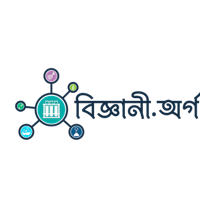
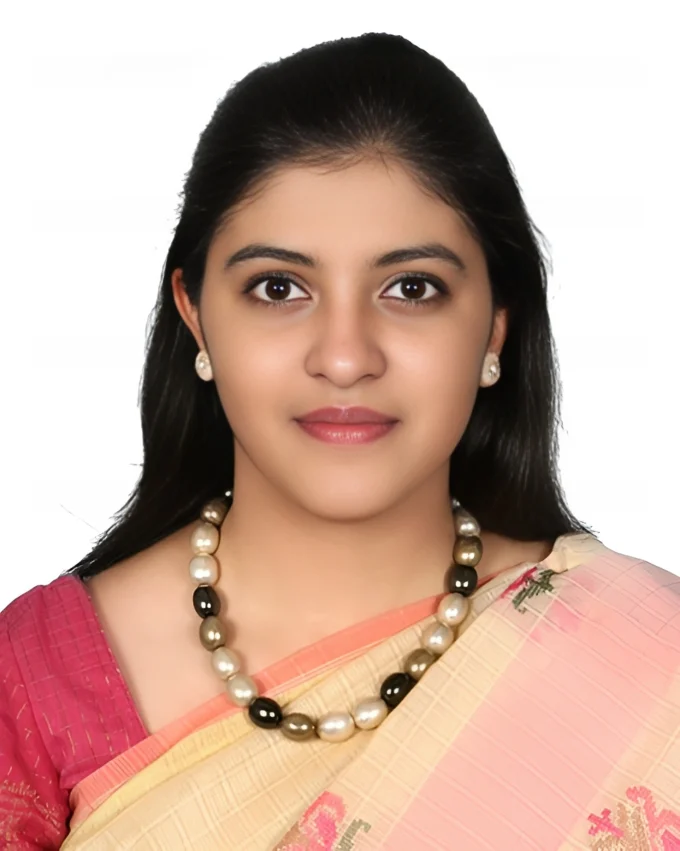
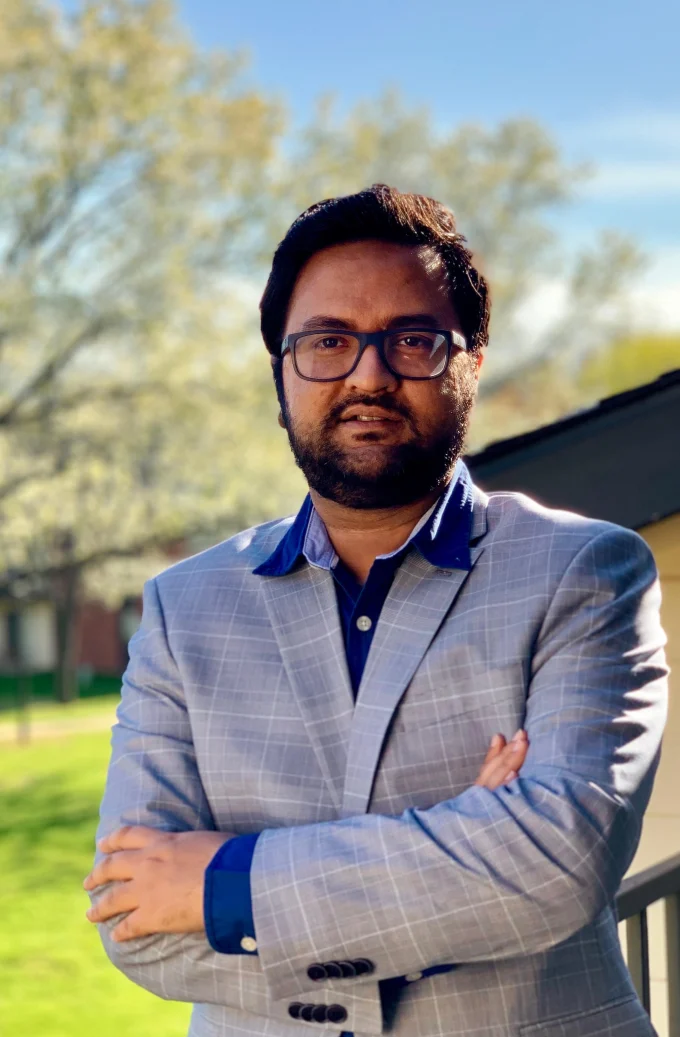
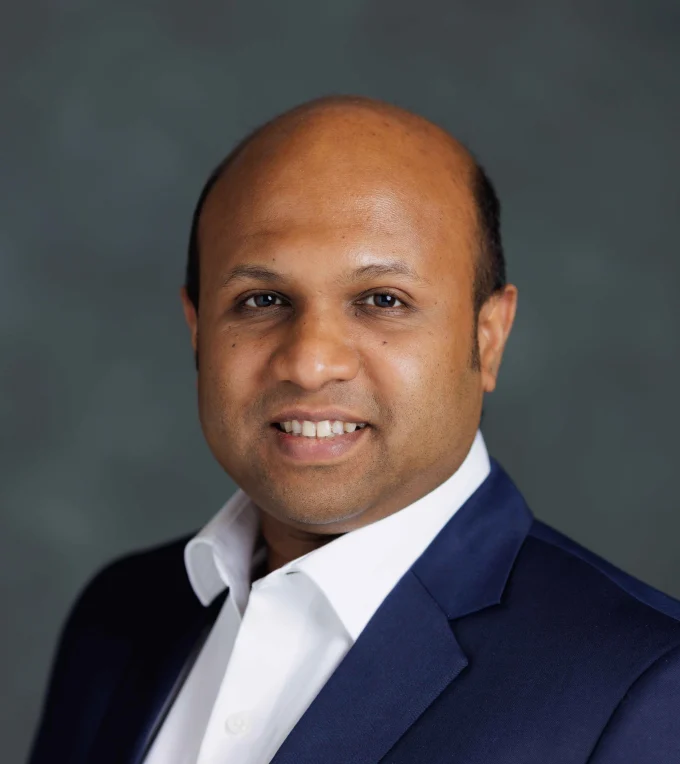
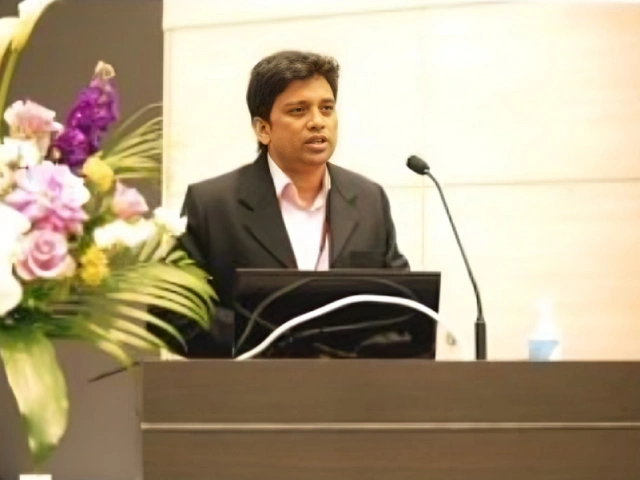

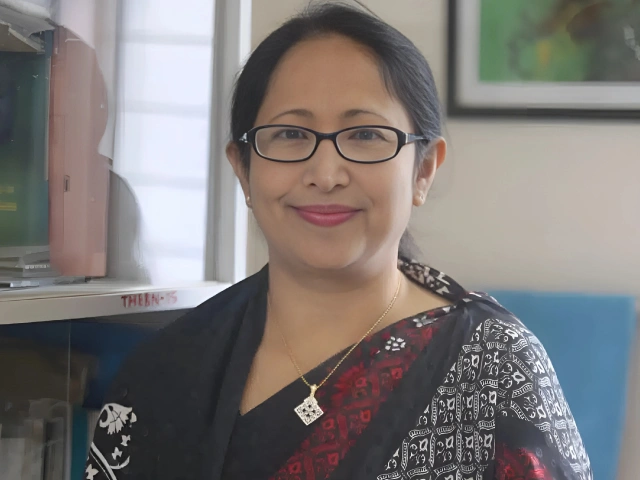
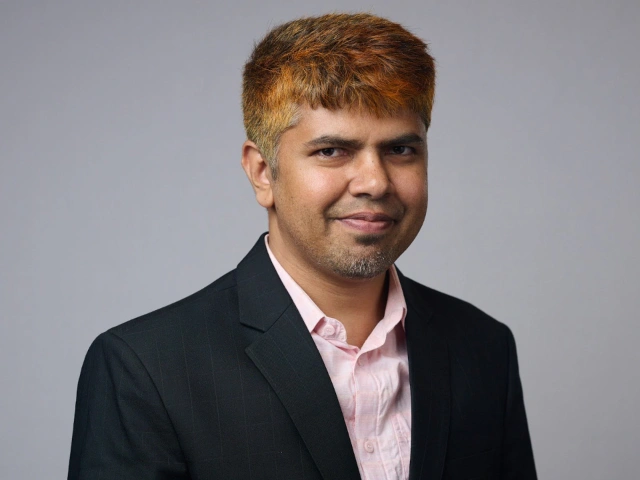
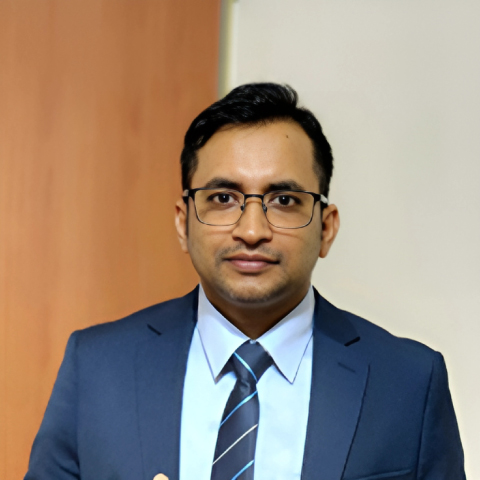

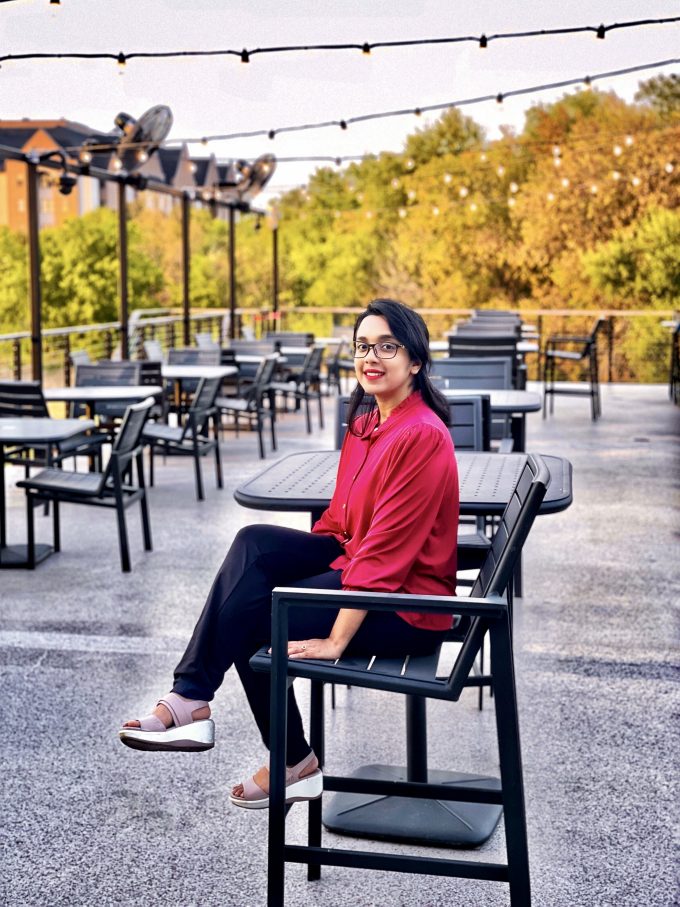













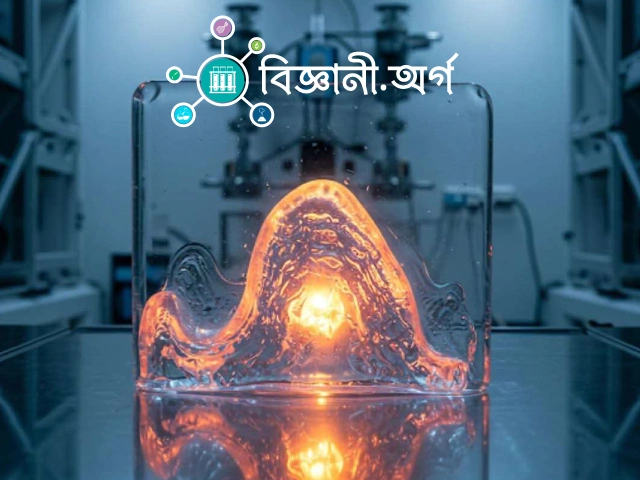
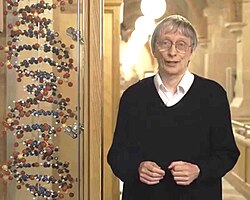


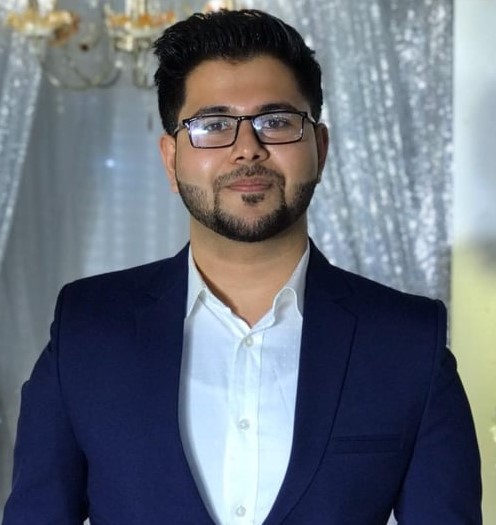
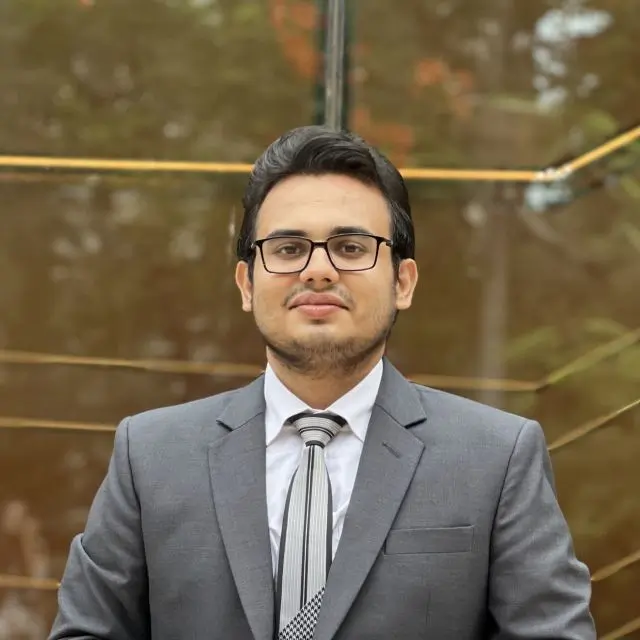
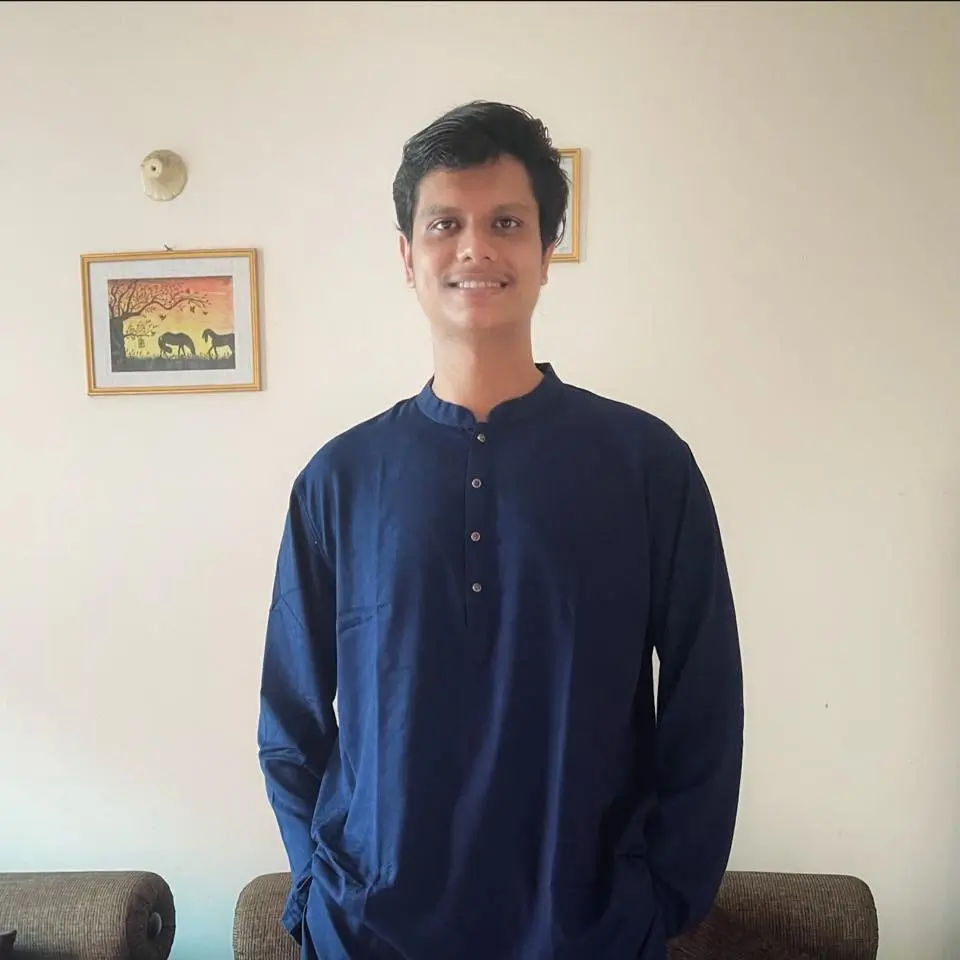
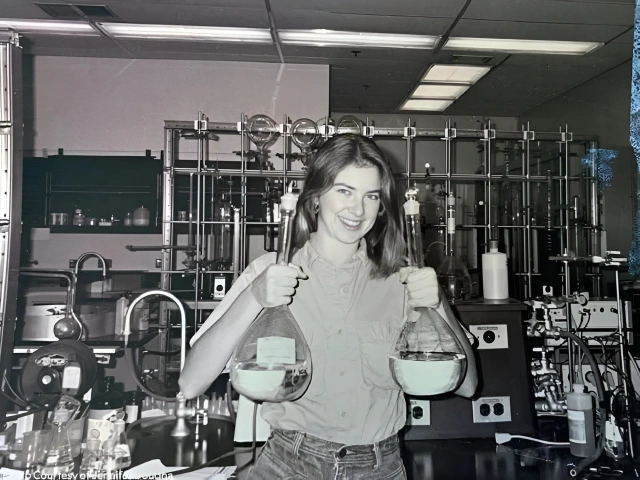


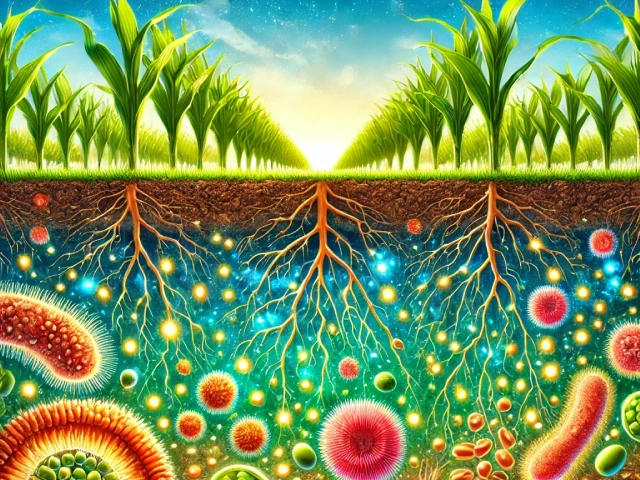
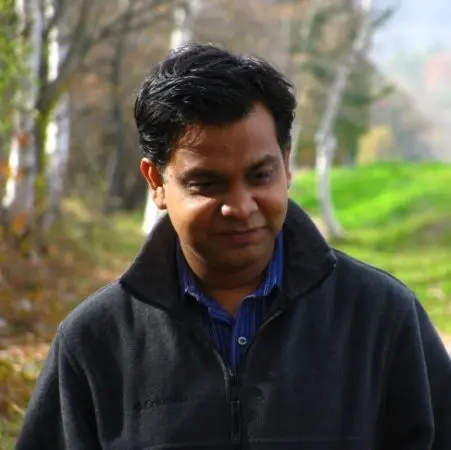


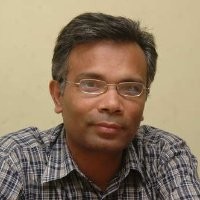

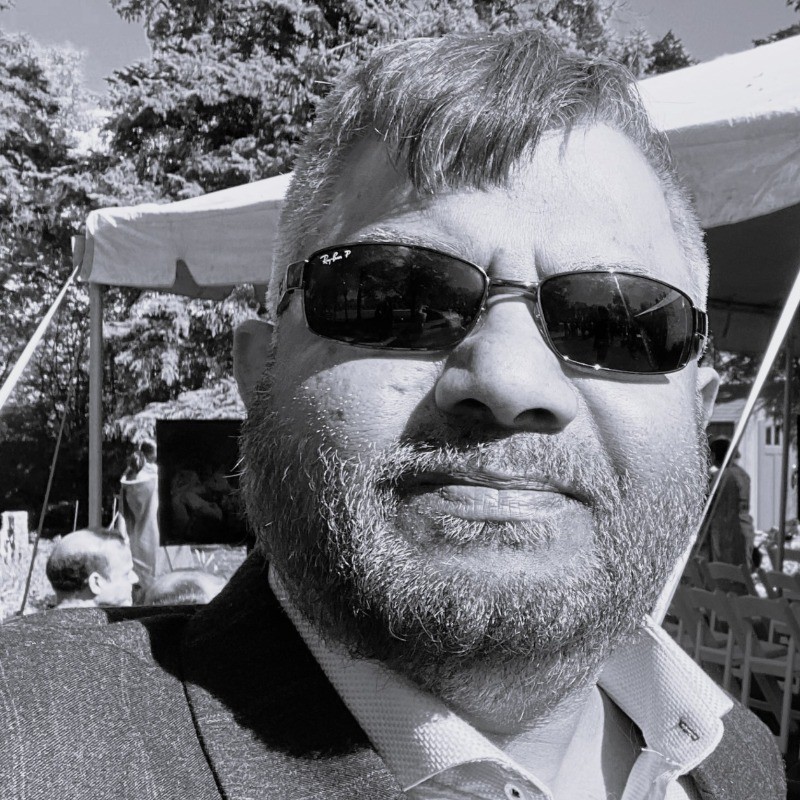

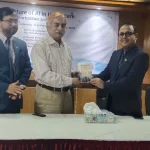

Leave a comment